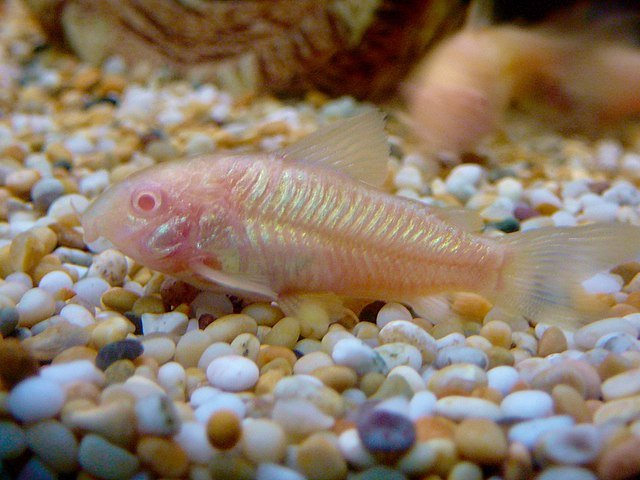
by Cardiff University
Keeping tropical fish as pets could contribute up to 12.4% of the UK’s annual average household CO2 emissions and up to 30% of the UK annual average household water usage, a new study finds.
The carbon footprint and environmental impacts of keeping pet fish has been calculated for the first time by Cardiff University’s Water Research Institute.
Dr. William Perry, Research Associate at the Institute, said, “In the UK, 4 million households own a pet fish and it’s estimated that 70% of those that keep fish have a tropical freshwater aquarium.
“The carbon footprint of owning pets such as dogs and cats has been previously calculated, but we have provided the first estimates of carbon dioxide emissions produced from running a tropical aquarium, as well as estimated water consumption.”
Dr. William Perry developed estimates of the environmental impacts of fish keeping across multiple countries in Northern Europe (France, Poland and the UK). The estimates are discussed in the context of freshwater and marine aquariums, calculated using example aquarium sizes of 50, 200 and 400 liters. The research, “The environmental impact of keeping a tropical aquarium in Northern Europe,” is published in the Journal of Fish Biology.
Using estimates from the UK, depending on size and running conditions, a tropical aquarium produces an estimated 85.3 to 635.2 kg of CO2 per year, equating to 1.6%–12.4% of the UK annual average household CO2 emissions.
The research also estimated that tropical aquariums use 156 to 31,200 liters of water per year, equating to 0.2%–30.1% of the UK annual average household water usage, depending on size and maintenance regimes.
The biggest environmental factors included heating the water, especially in larger aquariums, as well as the country of origin—due to different levels of decarbonization in electricity grids in different countries.
Dr. Perry added, “Ornamental fish keeping can be a more environmentally conscious pet choice than owning an average sized dog or cat, which are likely to produce considerably more emissions through their consumption of meat.
Stay Always Informed
Join our communities to instantly receive the most important news, reports, and analysis from the aquaculture industry.
“However, the environmental impacts of fish keeping can also be substantial depending on aquarium size, how it is run and even what country it is in. There are still improvements that can be made to ensure the environmental sustainability of the hobby.
“The environmental impact from the energy needs of keeping fish will improve as national energy grids start to decarbonize, but reducing the environmental impact of high water consumption will not come easily and will require ingenuity at the level of the individual.
“These are important considerations as we face a climate emergency linked with our demands for energy, as well as water insecurity linked with our demands for water.”
Contact
William Bernard Perry
Water Research Institute, Cardiff University
Cardiff, CF10 3AX, UK.
Email: perryw1@cardiff.ac.uk
Reference (open access)
Perry, W. B. (2023). The environmental impact of keeping a tropical aquarium in Northern Europe. Journal of Fish Biology, 1– 9. https://doi.org/10.1111/jfb.15478
Editor at the digital magazine AquaHoy. He holds a degree in Aquaculture Biology from the National University of Santa (UNS) and a Master’s degree in Science and Innovation Management from the Polytechnic University of Valencia, with postgraduate diplomas in Business Innovation and Innovation Management. He possesses extensive experience in the aquaculture and fisheries sector, having led the Fisheries Innovation Unit of the National Program for Innovation in Fisheries and Aquaculture (PNIPA). He has served as a senior consultant in technology watch, an innovation project formulator and advisor, and a lecturer at UNS. He is a member of the Peruvian College of Biologists and was recognized by the World Aquaculture Society (WAS) in 2016 for his contribution to aquaculture.







